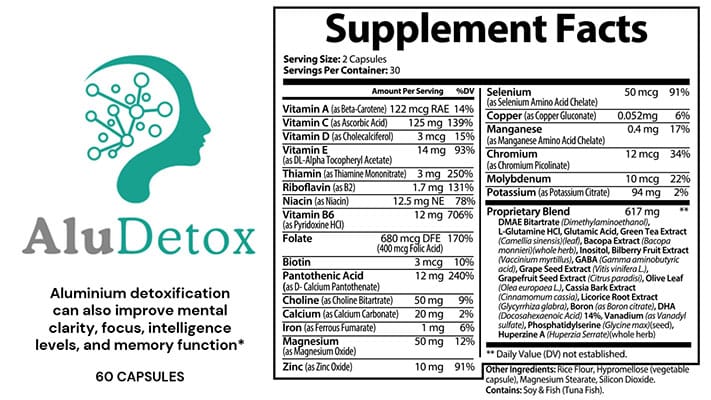

Extensive research has clearly demonstrated the harmful impact of aluminum accumulation in the brain and body, linking it to numerous common diseases and neurological disorders.
With these serious risks in mind, we have developed a powerful, scientifically tested formula that has shown exceptional results, proving highly effective at naturally and safely removing aluminum.
AluDetox utilizes only natural ingredients that work in harmony with the body’s processes, effectively eliminating aluminum without causing harm.
Our formula includes key ingredients for aluminum detoxification, expertly combined for optimal results, such as:
In addition to detoxifying aluminum, AluDetox combines carefully selected ingredients to help regenerate damaged brain tissue and support healthy cognitive function, such as:
To maximize the effectiveness of our aluminum detoxification and brain health ingredients, AluDetox also includes a blend of essential vitamins and minerals such as:
Our mission is clear and impactful: to protect human health and enhance the quality of life.
Our team of scientists has undertaken the important task of developing an effective aluminum detoxification formula and making it accessible to people worldwide.
We believe that, If we must live in this toxic age of aluminum, we at least deserve a fighting chance.








